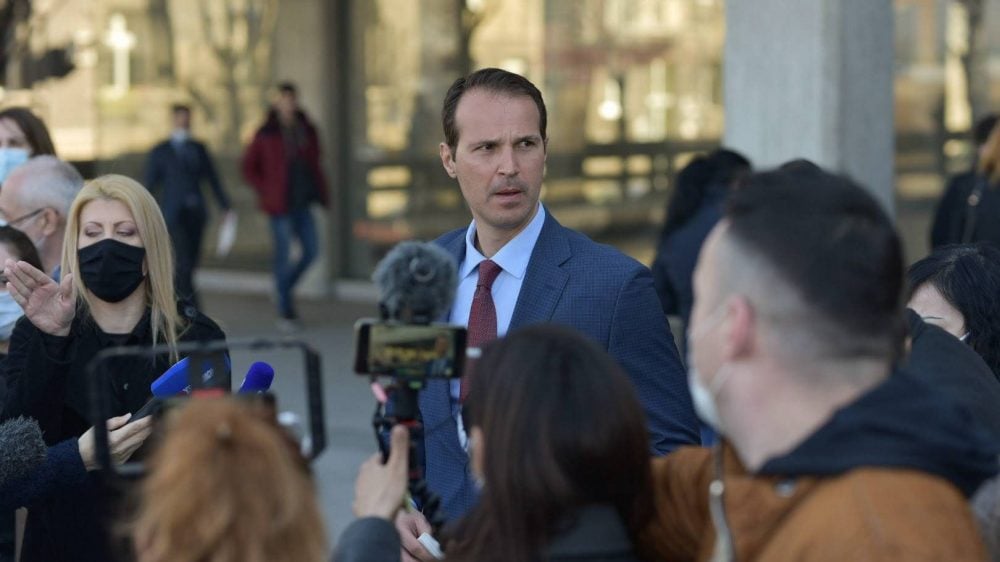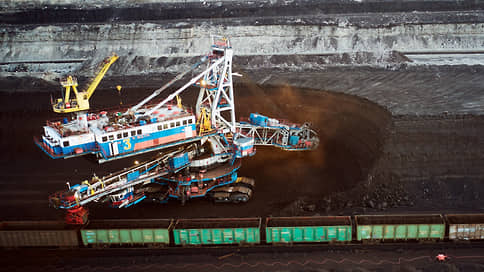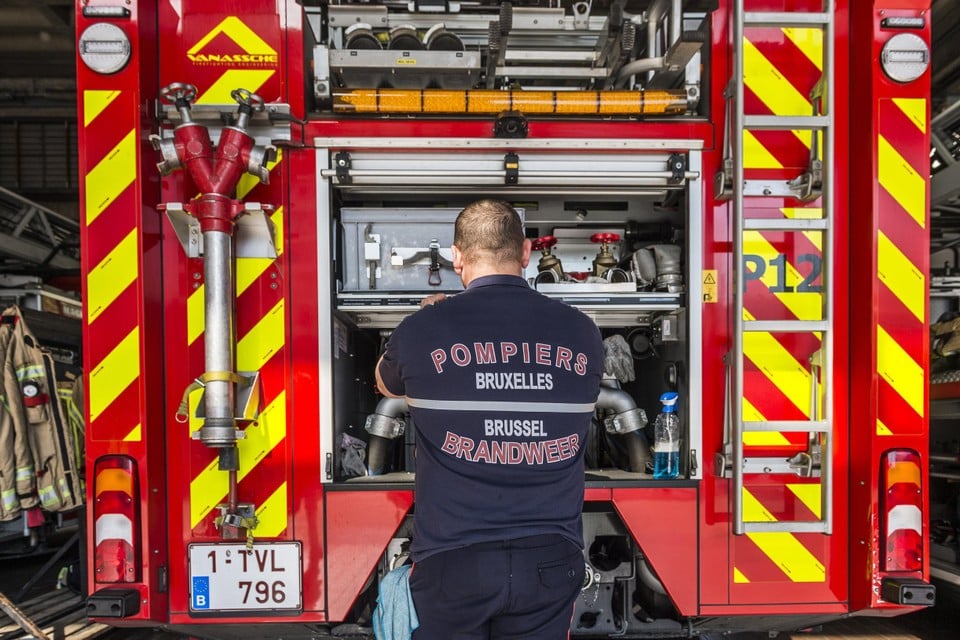First May in Berlin: When the Labor Day merges Karl Marx, cyclists and the Middle East – BBC News in Serbian
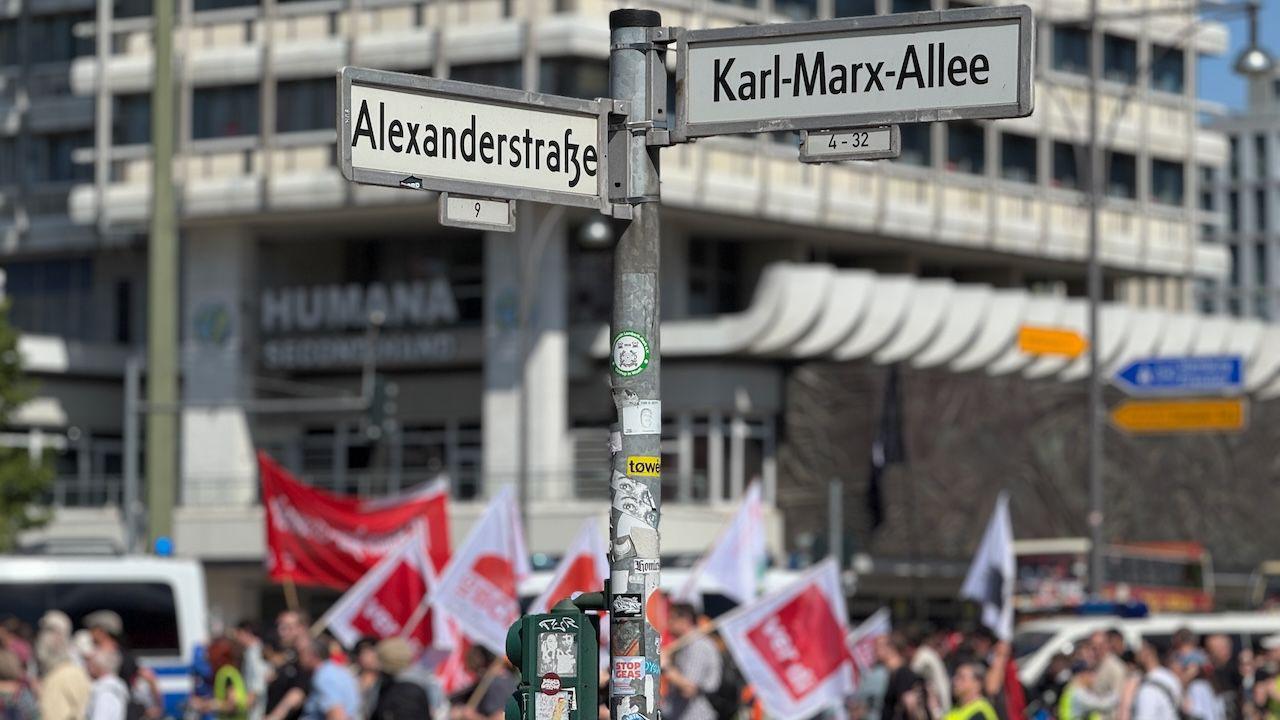
The red flags of trade unions and left-wing political parties have been carried out in the stalk paths of Berlin for years, the capital Germany.
« In previous years, we fought for the improvement of rights, but now we only fight that things do not become even worse, » a slightly pessimistic picture of Stefani, professor in a Berlin high school.
On the first day of May, only fighters for workers’ rights do not go to the streets.
At least three separate protests, cyclists are fighting for safer streets in which youth are looking for more freedom in Gerlic Park, unaviously known for drug trafficking, while the day is cul-de-protest « revolutionary first May » Left-wing organizations and parties.
« We are here to protest for workers’ rights, but also for freedom for all political prisoners and change of systems.
« We want our voice against Militarization of Germany because young people are responsible, » says Lea, a young demonstrate who does not want to reveal its full red carnation, a symbol of the first fight.
About 6,000 police officers were arranged worldwide, and they were also with special tasks: how peaceful conflicts, which first try to call that those who would disturb the order, so and those under full equipment for breaking demonstrations.
The International Labor Day is marked 1. May since 1889. years, in memory of US unions protests.
They demanded the introduction of eight-hour working hours, but also as much time for rest and cultural rise of workers who have been massively exhausted by unlimited shifts.
Protest, but also strike
The wide Boulevard of Karl Marks, the central Ale of the former East Berlin when the city was divided by a Berlin wall, red flags with a sickle and hammer again.
The Men’s sun shines symbols of communism, who managed half the 20th century as the capital of East Germany, the country in the satellite system of the Soviet Union blocks of Europe.
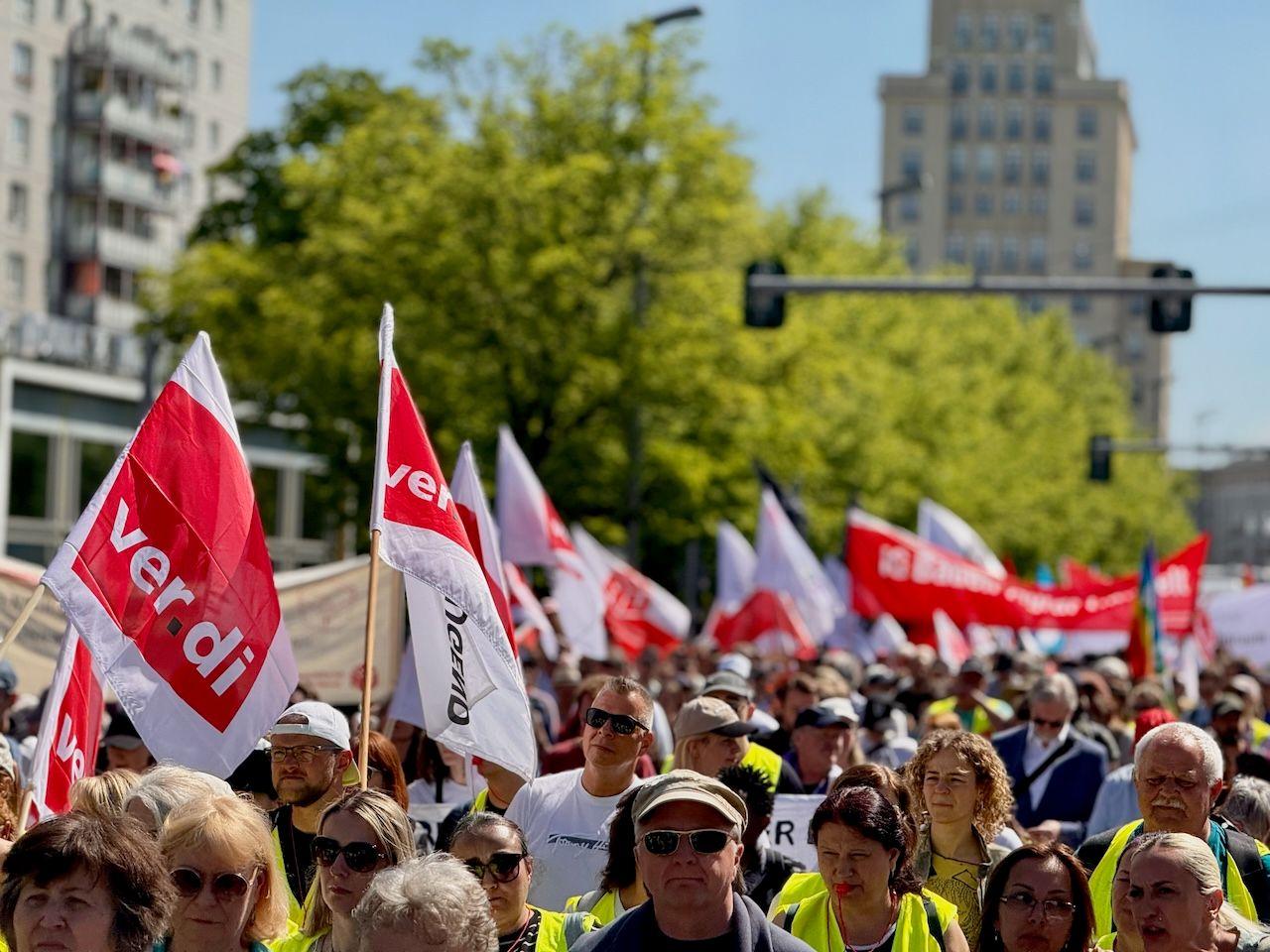
Previous 60 years, the first May marked Jirgen Schulte, today, retired, but still with the flag in their hands.
« Authorities and in Germany, but also local in Berlin, are a policy that is contrary to social progress.
« We have to try to show that we are here, that we are ready to fight, » he says, who was in a 16-year protest for the first time.
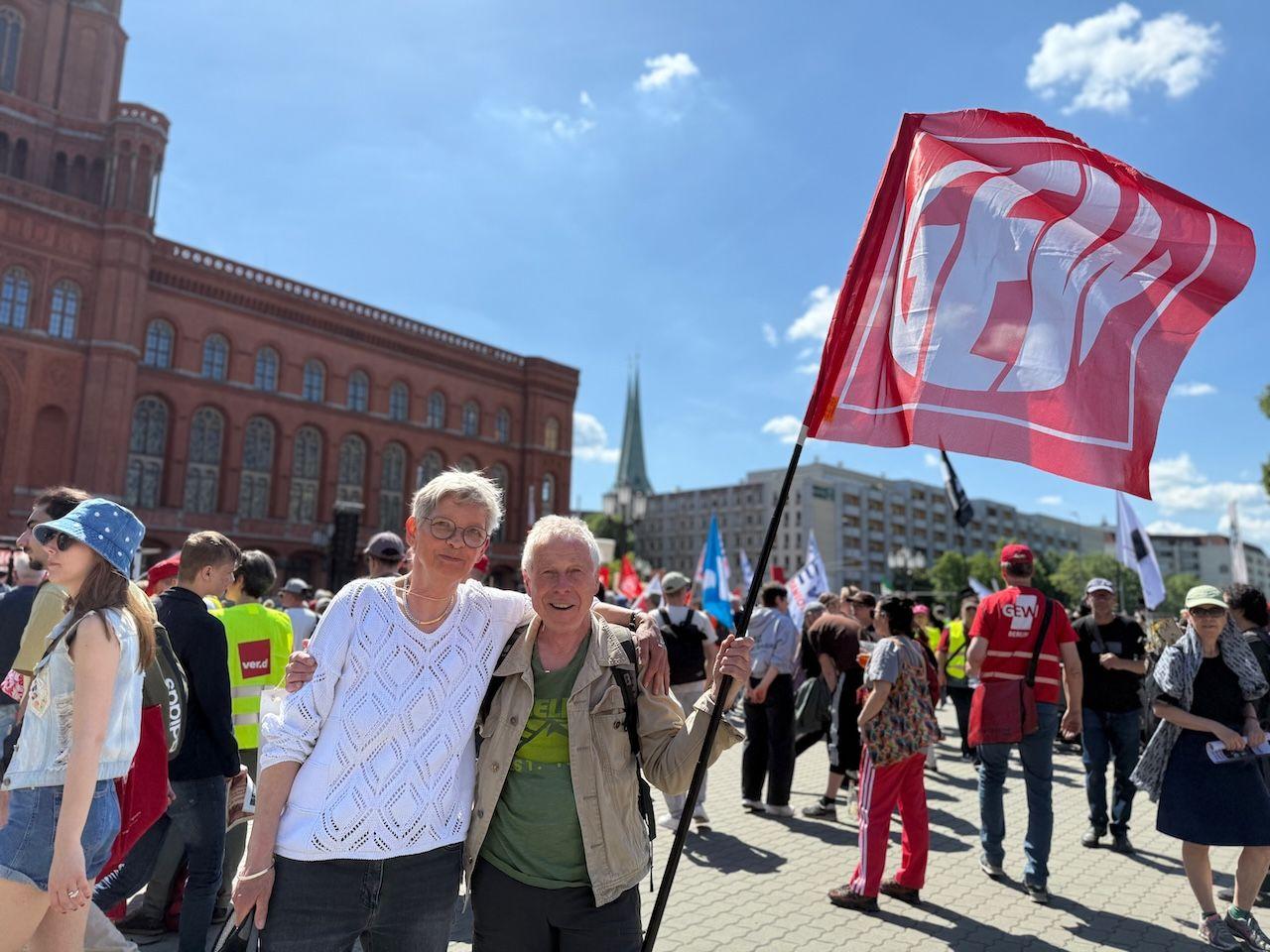
Paroles on higher salaries that should provide a dignified life for workers and their families, working hours, holidays, physical and mental health, are not unexpected.
The Berlin protest also joins the demands for lower rentals for apartments, which are among the largest economic problems of residents, but also some political message – from the peacekeeping, all the way to the demonstrators in Russia.
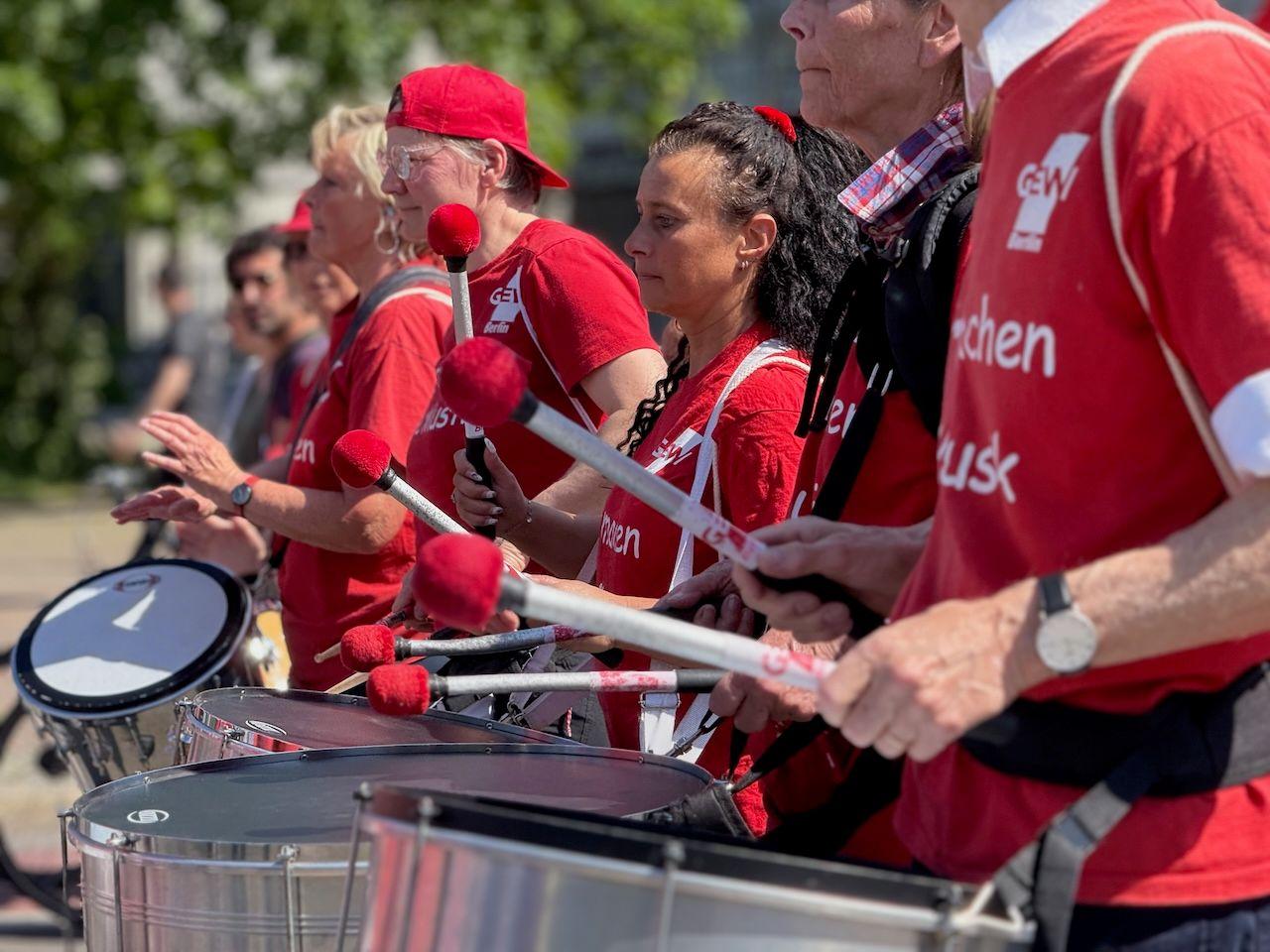
For a professor in Berlin high school, the choice does not – because teachers have more and more work, and they are all less paid, going to the streets, at least on May 1, is an obligation.
« Even though things are not better, hope keeps me in belief that it is worth fighting.
« Take it easy, slowly, but we have to be persistent, but also louder – if we stop fighting and giving up, everything loses meaning, » Stefani says.
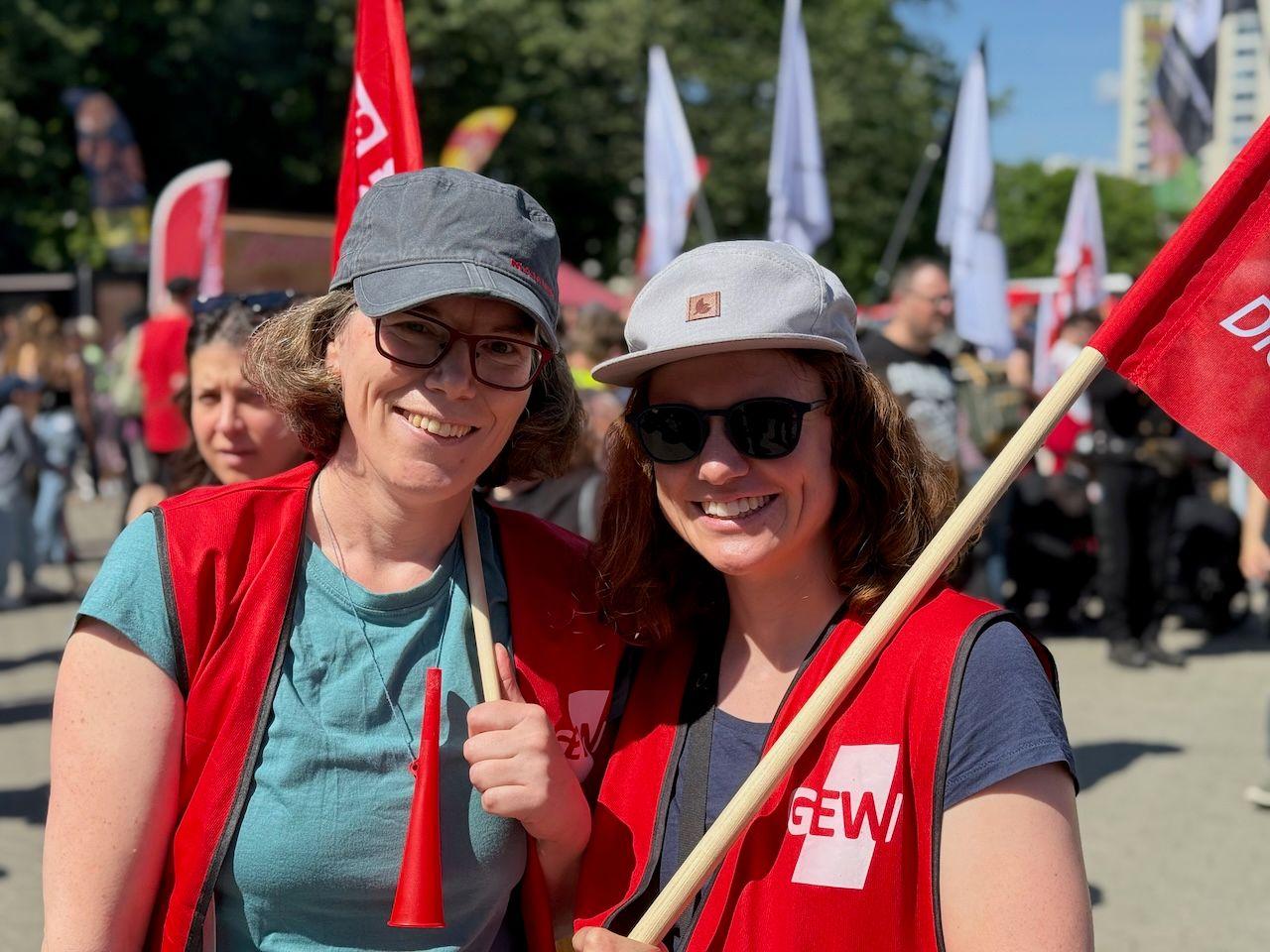
However, the city, which has been reunited since 1989, he saw an incomparably longer column of demonstrators, more flags, louder protests.
Every sixth employee of the German is a member of one of the largest unions, show framework assessments of the organization for European Security and Cooperation (OSCE).
In the country with more than 83 million people, it is estimated that at least seven million have a membership card of someone from the association that is fighting for the rights of workers.
On the streets of Berlin, the city with more than 3.8 million inhabitants, took only a few thousand fighters for workers’ rights.
Although they may not have interested a number of demonstrators, even at ideally sunny 23 degrees, unions in Germany this spring tried to show strength in other ways.
The largest airports, railway and bus stops, as well as the ports were paralyzed because union members were abandoned by jobs.
The city’s transport in Berlin on several occasions was fully stopped at 24, and for 48 hours, and passengers were left to the use of the National Railways passing through the city.
The entire week, the city utility did not apply garbage from the crowded container.

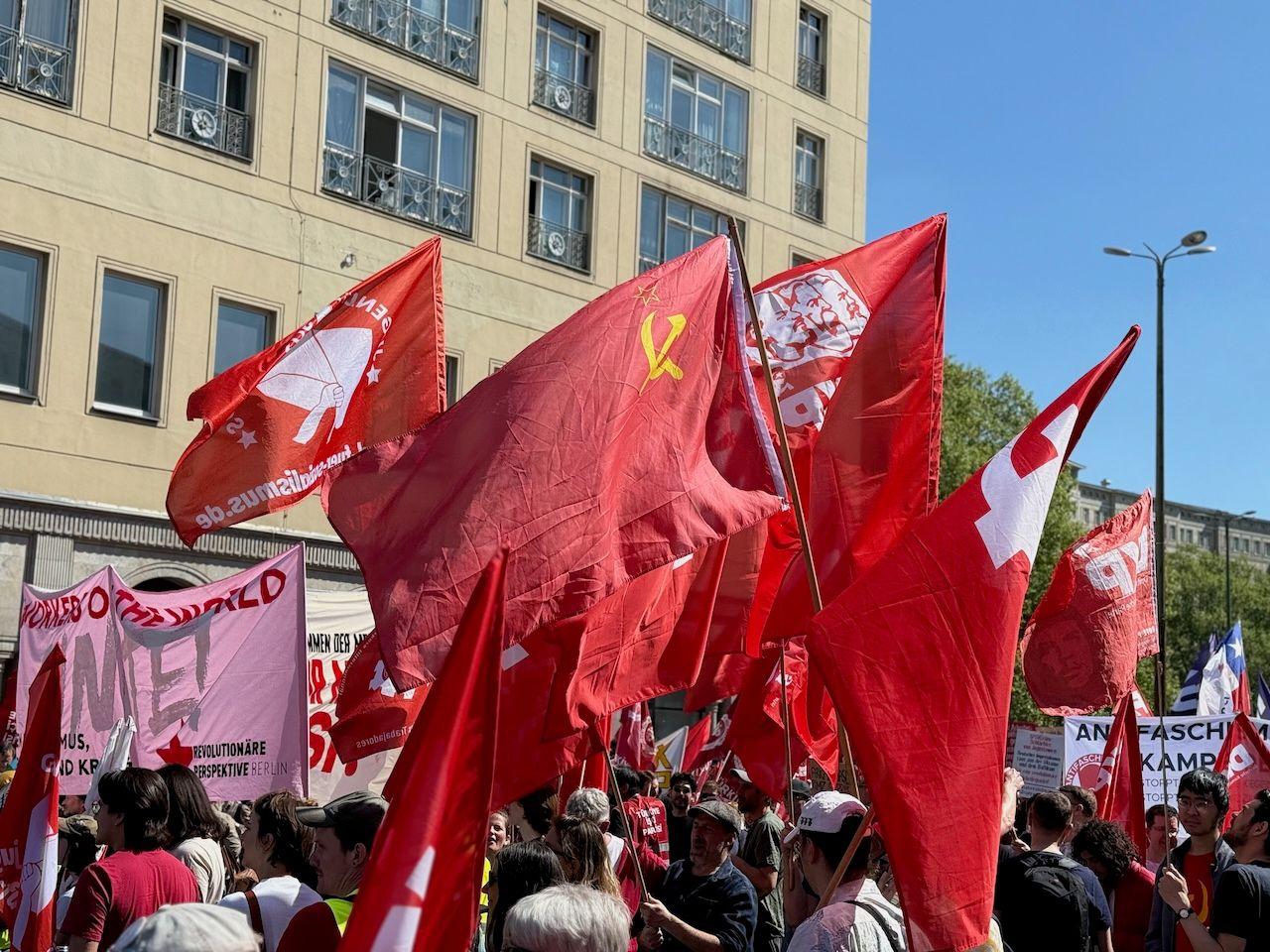
Such public officials were trying to execute the departure government of Olaf Shalc, otherwise social democrats, parties that traditionally closer to conservative workers, to increase salaries and other benefits in the public sector.
After several months of negotiations, the employees have elected a total of 5.8 percent of the wage increase, but on two occasions, as well as increasing additional income, such as compensation for shifts or 13. salaries.
The unions were looking for an increase of eight percent and immediately, the government has initially offered even less.
« This collective agreement is a sign of respect for the hard work of public sector employees, many of which have difficult and challenging jobs.
« It must be manifested in their salaries and good working conditions, » Nancy Feer, Minister of Internal Affairs, said, who led negotiations on behalf of the Government.
Since they are in the middle of union negotiations in Germany held Extraordinary parliamentary electionsVoters are the Social Democratic Party (SPD), the Party of Shalz and Fezer, punished with even nine percent less votes than in the 2021 elections. years.
The historical result made a party left (Die Links), winning eight percent of votes, but also showing the potential to grow further.
Still, the left will, as well as right-handed Alliance for Germany (AFD), remain in the opposition, while the new authority will be made by the conservatives of the Christian Democratic Union (CDU) Fredriha Merca and Social Democrats (SPD).
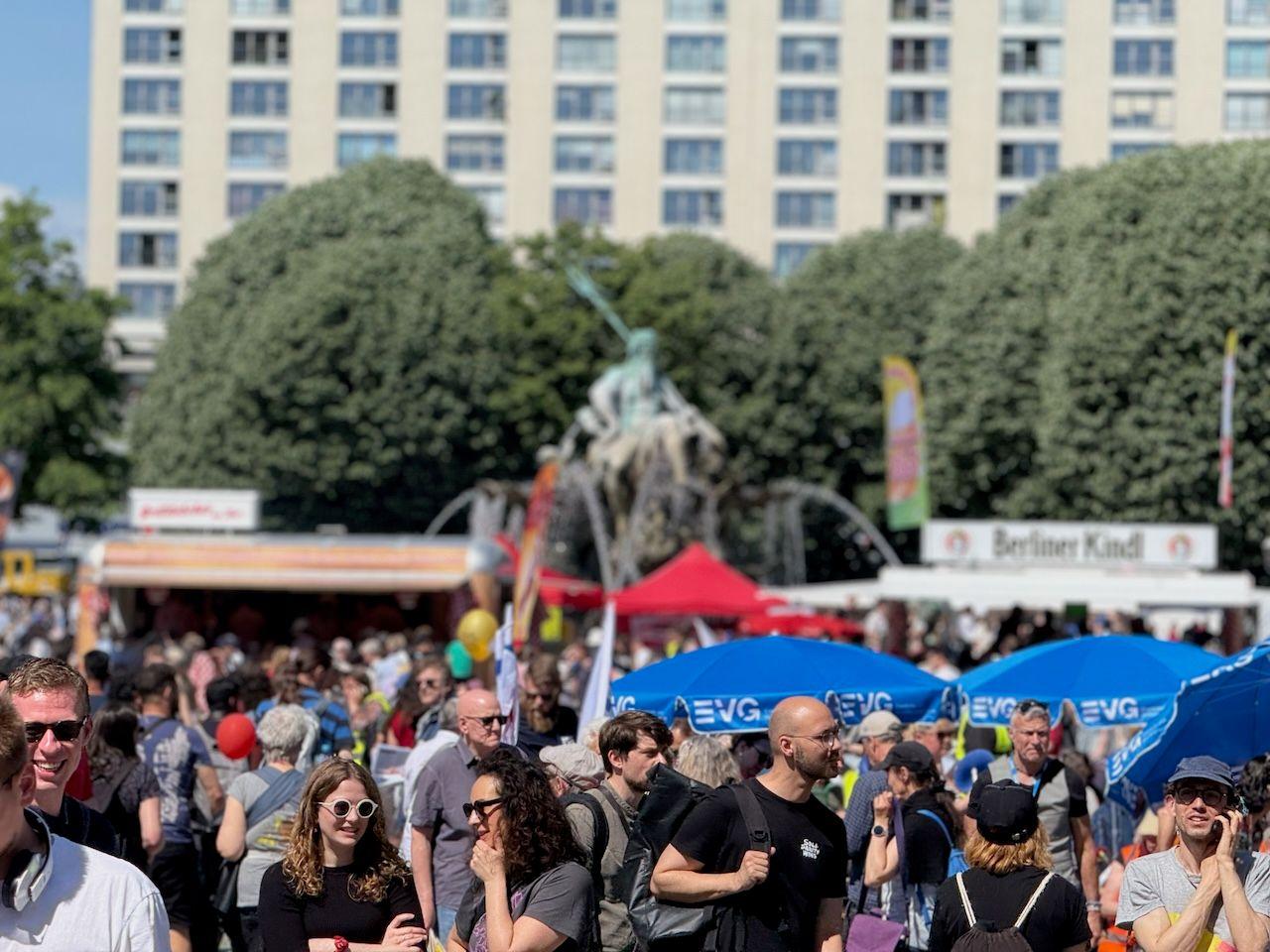
‘Revolutionary first month’
The red carnation, the flower symbol of the International Labor Day, were part of the procession, which has been moving the streets of Neukelna and Krejcberg for several decades, parts of the former Western Berlin.
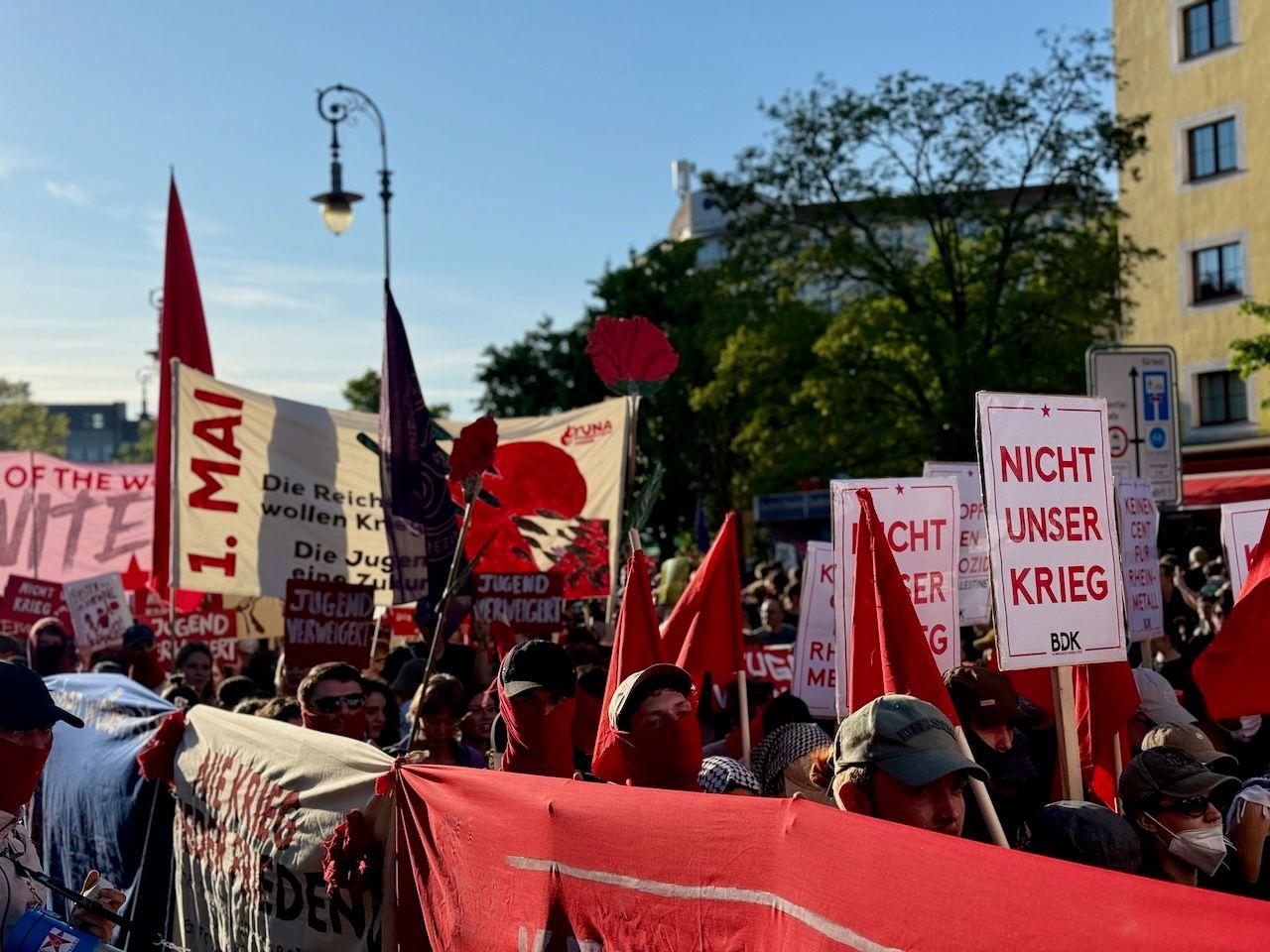
However, the messages at that expensive were not only related to working rights.
Often hidden faces behind scarves and surgical masks, in the protest march called « revolutionary 1. May », which organize left-wing and extremely left-wing organizations, walked by the younger people.
They describe themselves as opponents of capitalism, supporters of international solidarity who want peace and wear flags of Palestine, North Korea, China, the former Soviet Union.
« We are young people living in this country, work and study and that’s why we have all the rights to say we don’t want more Investments in the military industry« Says Lea.
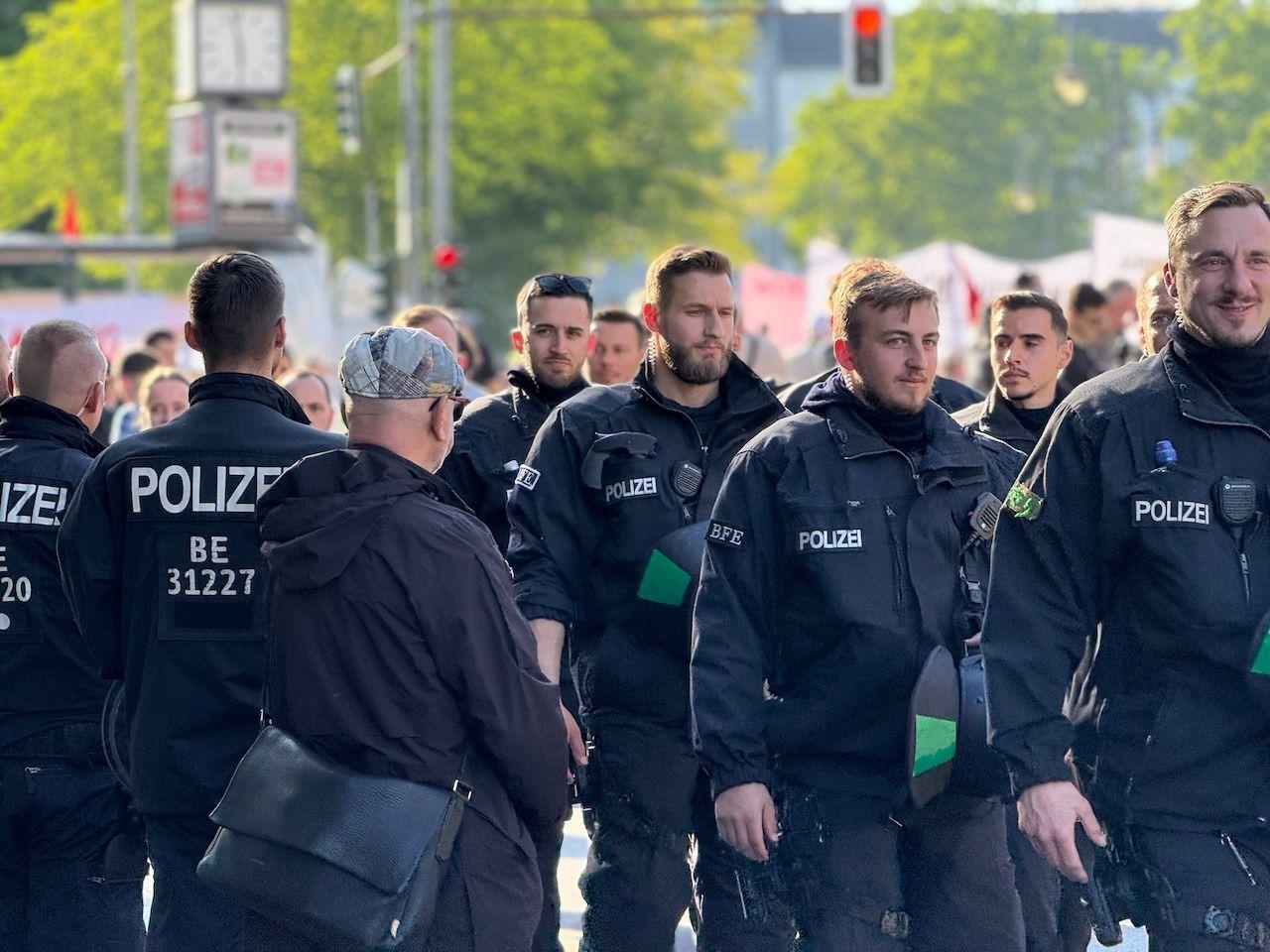
According to the police assessment, about 10,000 people participated in this gathering.
The flags of the Left Political Party (s) are clearly visible among them.Die Links), And Martin, her member, says party policies and first protests go hand in hand.
« We want to send a signal to the German political establishment that we want to stop militarization of German society and delivering weapons to Israel.
« It leads us to authoritarian society and it’s dangerous, » he says.
He adds that he wants his own party to see distant from the Social Democrats and the Green, not in the coalition with them.
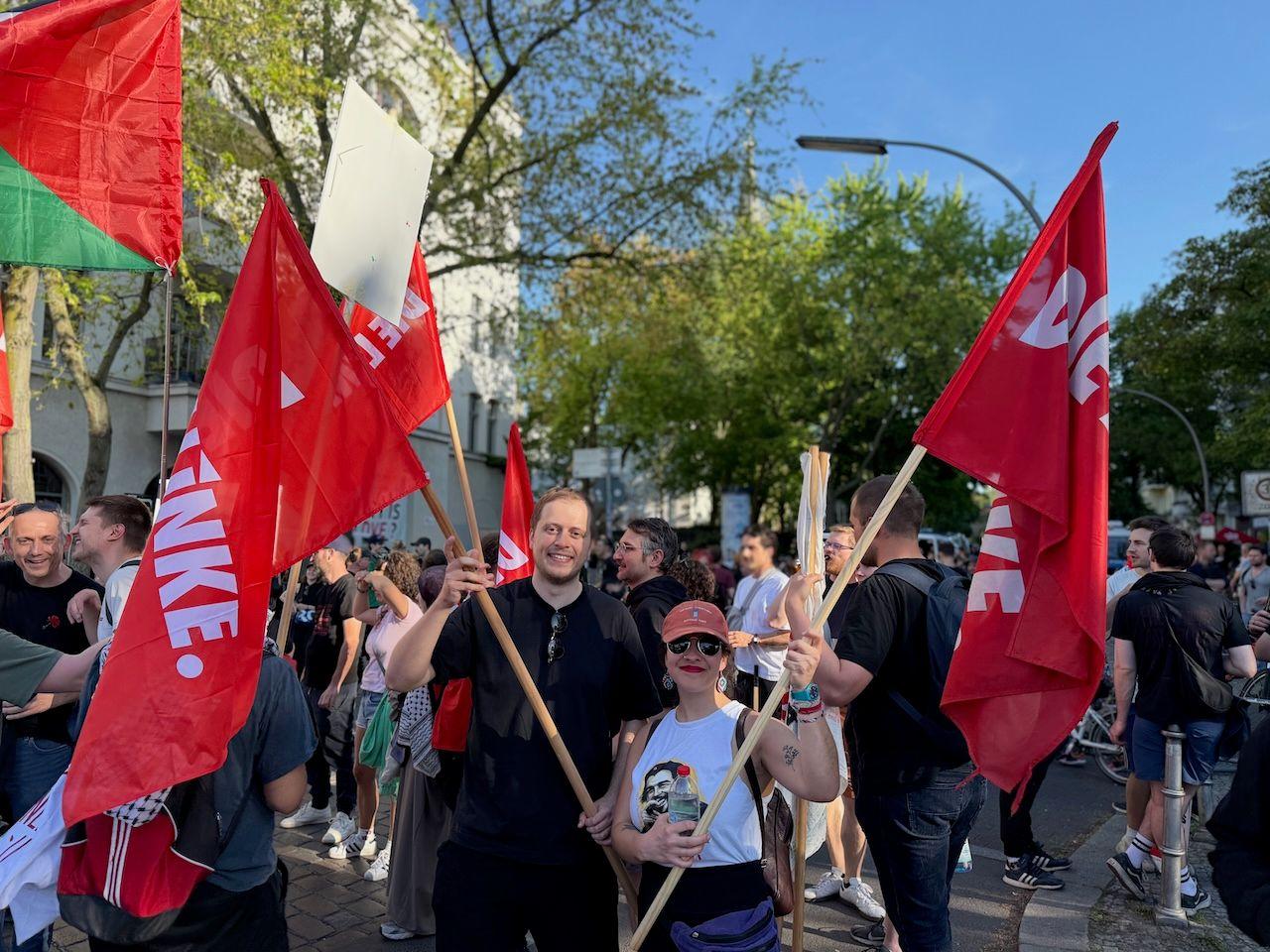
These demonstrations have regularly brought conflicts of police and demonstrators in the last ten years.
Every year, in the last ten, there were 30 to 350 arrested, and from 5 to 90 injured police officers.
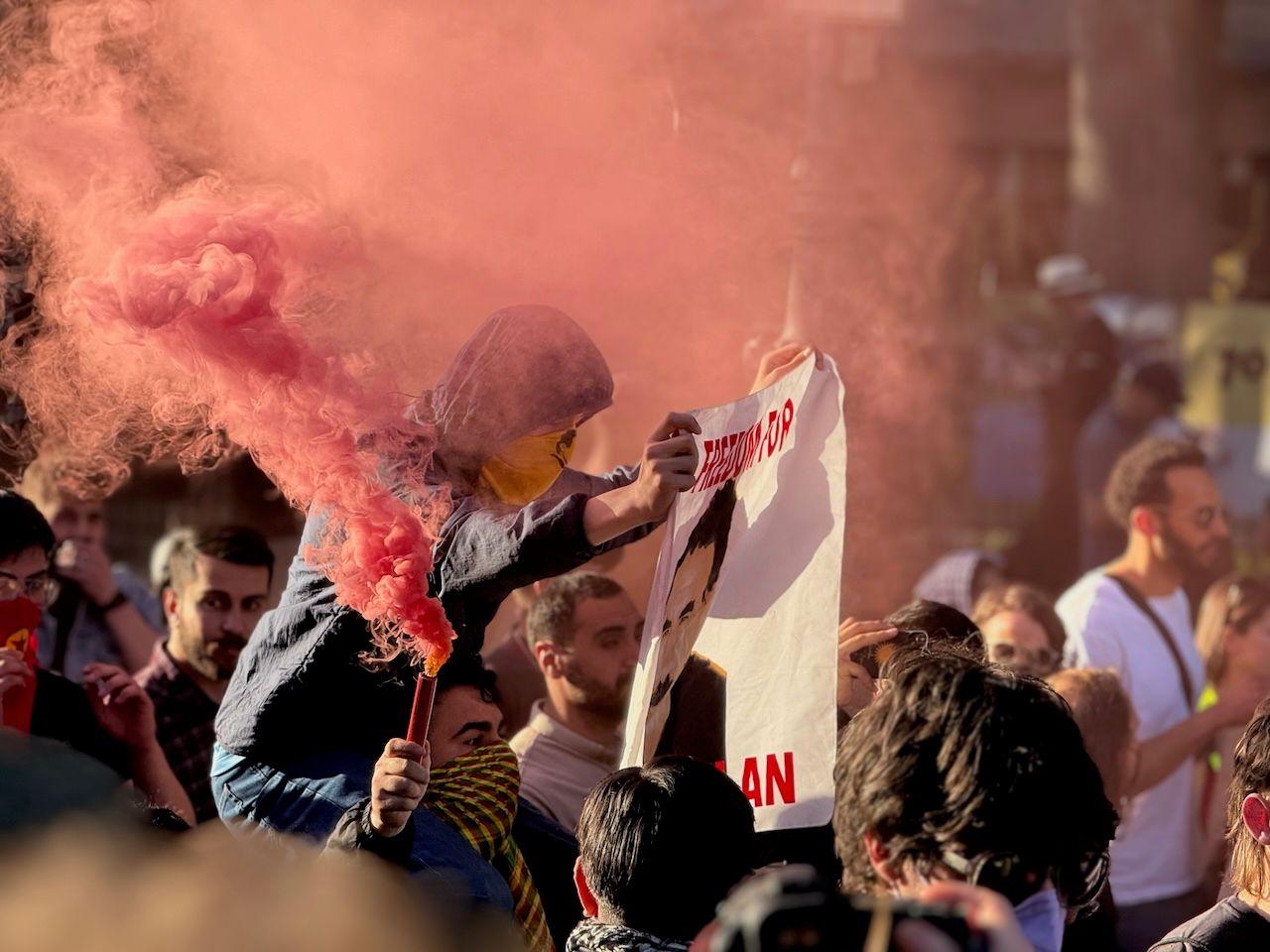
Therefore, this year, the Great Police Force provided the streets to whom the columns were awarded.
The BBC in Serbian is from now on and on the morning, follow us Here.
Follow us on Facebook, Twitter, Instagram, Jutjubu and Vajiberu. If you have a topic suggestion for us please contact (Email Protected)

